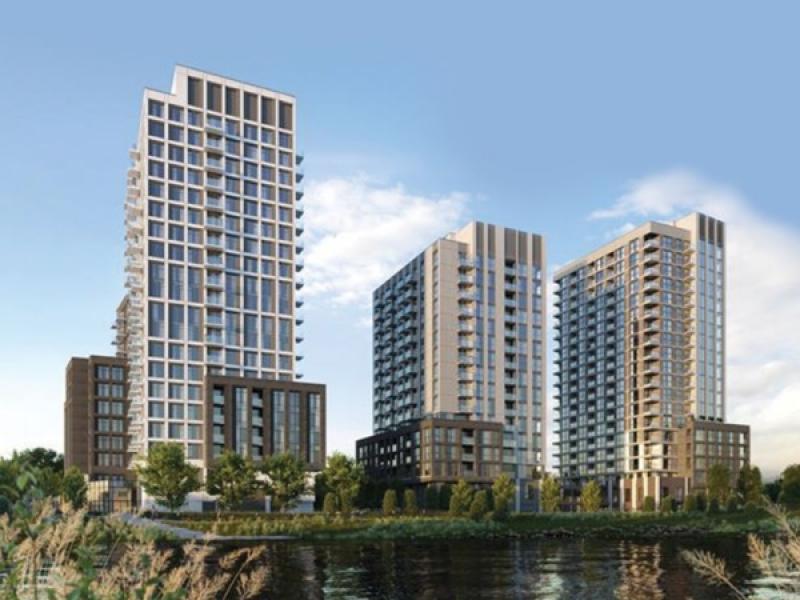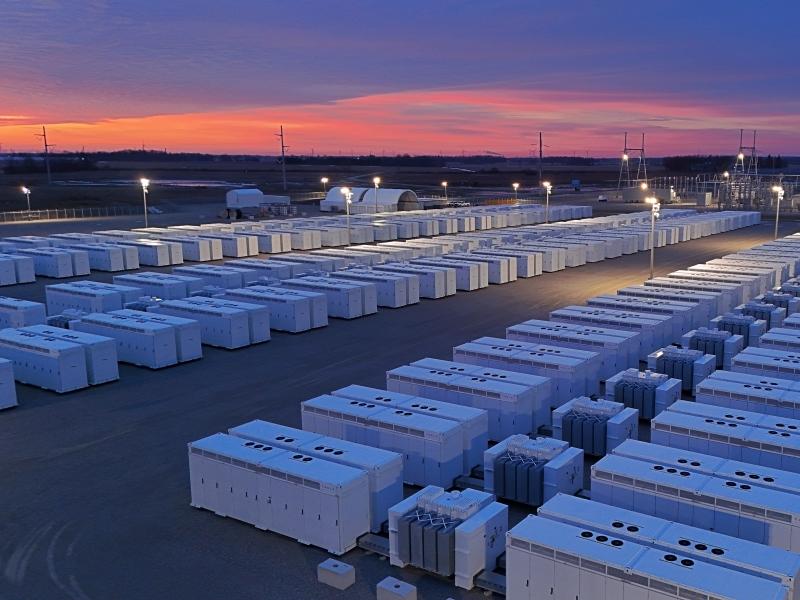
Minto Group reported ongoing progress on reducing energy use and carbon emissions across its portfolio of rental housing in its Sustainability Report
2024. However, a leap in water consumption was a sticking point for the Ottawa-based company.
Minto is a housing developer and the majority owner of a portfolio of approximately 10,000 apartment units in Canada.
It surpassed the five-year targets for energy and carbon emissions that were set in 2019, Joanna Jackson, Minto's vice-president of sustainability and innovation, said in an interview with Sustainable Biz Canada.
The company announced it reduced the absolute energy consumption of its rental portfolio by 21 per cent since 2019. It made a similar cut to the absolute carbon emissions from the rental portfolio — a 20 per cent reduction since 2019.
But water use has been rising over the past six years, having increased by almost 26 per cent since 2019 in absolute consumption and intensity.
Called “a bit of a mystery” by Jackson, the team at Minto has been searching for ways to plug the figurative leaks with technical solutions and tenant engagement.
How Minto cut energy and carbon emissions to date
Minto is always on the hunt for technologies that reduce a building’s energy use and enable it to operate in the most efficient way, Jackson said.
To enhance energy efficiency in its rental portfolio, Minto implemented technologies such as:
- building automation systems to optimize equipment performance;
- an aerosolized duct seal to reduce air leaks and increase energy efficiency;
- shower heads with thermostatic shut-off valves; and
- LED lighting retrofits.
Those efforts resulted in carbon emission reductions. As most of Minto’s rental buildings are heated using natural gas, greater energy efficiency “goes hand in hand” with abated greenhouse gas emissions, Jackson said.
In 2024, Minto exceeded its target of diverting 80 per cent of its construction waste from landfills by reaching 80.7 per cent.
To achieve this, Minto educated its waste haulers and site staff on diversion strategies. One example Jackson gave was briefing a construction team on the process and format to manage waste at the beginning of each project, and checking up periodically so the 80 per cent target was being met.
As far as the escalating water use, Minto believes it largely has to do with a change in how its residents use their apartments, Jackson said.
During the COVID pandemic, people stayed home for longer periods, so naturally water consumption rose. Once the pandemic subsided, Minto anticipated water use would decline. But the data shows the opposite has occurred.
Minto has deployed water meters at all of its mid- and high-rise projects to track water consumption. This will help uncover specific incidents of consumption spikes or leaks at the properties, Jackson explained. It will also help Minto develop a water consumption plan. Additionally, the company is embarking on a resident education campaign and training its site staff to identify problems in the water infrastructure.
Minto's standout buildings in 2024
Two buildings Minto highlighted for their sustainable features in the report are the condo community North Oak in Oakville that features a geothermal system, and an apartment building at 61 Yorkville Ave. in Toronto where it embarked on a major deep retrofit.
North Oak has the first geothermal system Minto has installed in a development, Jackson said. A heat pump in each unit connected to a geoexchange system will provide renewable heating and cooling for the residents. This will contribute to slashing the carbon emissions for the entire community by over 70 per cent, according to the report.
“Being able to use it on a site-scale rather than just an individual building-scale was a huge accomplishment for the development team,” Jackson said.
For the retrofit of Minto Yorkville, the developer had “lofty goals” to meet – a minimum 50 per cent reduction in greenhouse gas emissions and energy use – to receive the full grant incentive from the City of Toronto’s Deep Retrofit Challenge, Jackson said.
The building upgrades include duct seals, a domestic water booster pump with integrated controls, new air source heat pumps and a heat recovery chiller.
In the first four months of operation from March to June, the retrofits resulted in energy use being cut by 44 per cent and greenhouse gas emissions trimmed by 62 per cent compared to the same period in 2024. Minto expects those numbers to improve in the peak winter months, putting it on track to meeting its goals.
Minto will continue to look for new technologies and opportunities to save carbon and energy, Jackson said.










